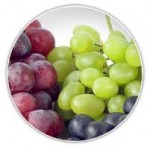Event Details
Date
December 1, 2016
Time
Thursday 9:00am - 4:00pm
Location
CCE Albany County meeting room
24 Martin Road
Voorheesville, NY 12186
Cost
$20.00 ENYCHP Enrolled Members
(additional attendee $20.00 ea.)
$30.00 Non-enrolled
(additional attendee $30.00 ea.)
Host
Cornell Vegetable ProgramEVENT HAS PASSED
Growing Table Grapes for Profit Workshop
December 1, 2016
Come and learn about the ins and outs of growing table grapes in New York. This session will cover subjects such as table grape biology, trellis construction, vineyard management, as well as marketing and planning for your new enterprise. Topics will be presented by specialists from CCE ENYCHP, New Hampshire Cooperative Extension, Northeastern Vine Supply, and Hudson Valley growers.
If you have questions, please contact Laura McDermott at lgm4@cornell.edu - 518-791-5038 or Abby Henderson aef225@cornell.edu - 518-746-2553Schedule of Events for Table Grape Workshop
9:00 am - Welcome
9:05 - Overview of Grape Biology (35 minutes) - Jim O'Connell, CCE ENYCHP
9:40 - Site Selection (40 minutes) - Jim O'Connell, CCE ENYCHP
10:20 - Cultivar Selection and Planting (40 minutes) - George Hamilton, University of NH Cooperative Extension
11:00 - Break
11:15 - Trellis Selection and Construction (30 minutes) - George Hamilton, UNH
11:30 - Overview of Vineyard Management Considerations - George Hamilton, UNH
12:10 pm - Practical considerations from a grower perspective (20 minutes) - Andy Farmer, Northeastern Vine Supply
12:30 - Lunch
1:15 - Plant Nutrition and Fertilization (30 minutes)- Tim Martinson, Cornell University State Viticulture Specialist
1:45 - Pest Management Overview (45 minutes) - Anna Wallis, CCE ENYCHP
2:30 - Break
2:45 - Planning for a New Enterprise - Liz Higgins, CCE ENYCHP
3:15 - Marketing Strategies - Hudson Valley grower(s)
3:45 - Evaluation and Q&A
4:00 - Adjourn



































